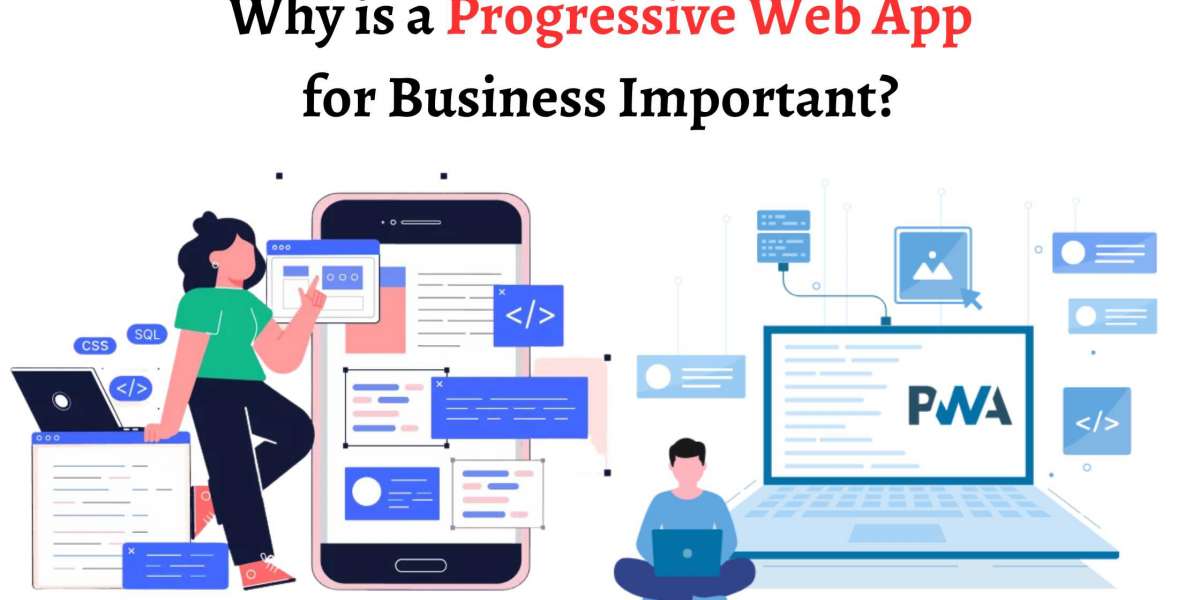Today 58.33 percent of global traffic comes from mobile users; as a result, businesses need to use the latest trends to reach potential users. And one of the easiest ways to do it is by investing in progressive web apps. PWAs combine the best parts of websites and native mobile apps to create a great user experience and boost engagement sales.
PWAs are incredibly useful for expanding the user base to reach a larger audience, as these can be easily shared through URLs. Moreover, developing progressive web apps has numerous advantages, such as faster loading times, working offline, and cost-effective development.
Well, developing PWAs is not easy; it requires sound technical skills. However, experienced PWA development services providers use the latest technologies and best methodologies to create them. Businesses can use these services to turn their vision into reality.
Benefits of Using PWA Development Services For Businesses
The advantages of PWAs for businesses are abundant. They include faster loading times, offline capabilities, lower development costs, enhanced user engagement, and the ability to reach a broader audience.
1. Lower Development Cost
Creating PWAs eliminates the need for separate versions for different devices, as a single web app can cater to all endpoints. It streamlines development efforts, significantly reducing development costs three to four times lower than native mobile apps.
2. Better Performance
PWA has faster loading times by using service workers that work in the background to handle the heavy tasks. These separate scripts prefetch all the required data, ensuring smooth and rapid navigation without impacting page load times.
Once the data is cached, app navigation becomes nearly immediate. Users can even add the app to their home screen, and it will be readily available without needing to load any additional resources.
3. Improved Security
An experienced PWA development company uses HTTPS to ensure data safety and minimize security risks, as this protocol prevents snooping and content tampering. Also, these teams use the industry's best practices, like encryption and two-factor authentication to deter data interception and protect sensitive information from unauthorized access.
4. App-Like User Experience
A reputable PWA development services provider can help you offer an app-like user experience by combining the best features of websites and native applications. With responsive design, PWAs adapt seamlessly to various devices and screen sizes, providing a consistent and optimized interface. Moreover, PWAs work offline, enabling users to access content and functionalities without an internet connection.
5. Increased Conversions
Progressive Web Apps (PWAs) offer fast loading times, providing users with a seamless and engaging experience, reducing bounce rates, and increasing user retention. These works offline help to ensure continued accessibility engagement even without an internet connection. With their app-like functionality and push notifications, PWAs enhance user engagement, encouraging repeat visits and conversions.
Moreover, PWAs are responsive across devices, accommodating a broader audience. Their ability to be added to the home screen without app store downloads streamlines access, boosting user acquisition. Ultimately leading to higher conversions and improved performance for businesses.
Final Thoughts
By skillfully integrating the best features of native mobile software and web applications, an experienced progressive web app development company can help businesses elevate user experience, leading to higher retention rates. However, it's not only customer satisfaction that benefits businesses. PWAs offer enhanced security, cost-effectiveness in development, and platform-agnostic capabilities, making them the preferred choice for prominent market leaders like Twitter, AliExpress, and Forbes.








